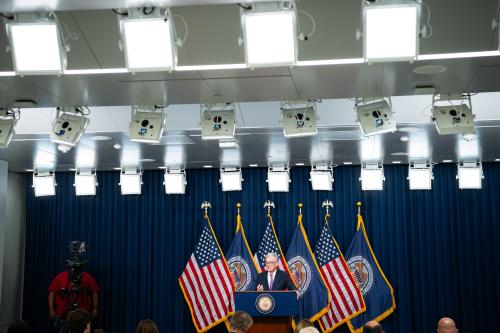Digital currencies like Bitcoin often make headlines for the massive swings in their value, but beyond the intrigue of skyrocketing and plummeting prices the rising popularity of cryptocurrencies poses serious questions for financial institutions and monetary policy. Eswar Prasad joins David Dollar for a conversation on the digitalization of money and what digital currencies could mean for the future of cash, international payments, and the strength of the U.S. dollar. Prasad also explains why some central banks have hesitated to introduce digital currencies while others have embraced them.
Related content:
Five myths about cryptocurrency
The Brutal Truth About Bitcoin
DAVID DOLLAR: Hi, I’m David Dollar, host of the Brookings trade podcast Dollar & Sense. Today, my guest is Eswar Prasad, an economics professor at Cornell and a senior fellow in the global development wing at Brookings. Eswar has recent op-eds in The New York Times and The Washington Post about digital currencies, and he has a new book coming out in September, “The Future of Money.” So that’s our topic today. Thanks for joining the show, Eswar.
ESWAR PRASAD: Thanks for having me, David. Always a pleasure talking to you.
DOLLAR: So let’s start with Bitcoin because it has gotten so much attention recently with the wild swings in prices. What’s going on with that? Is Bitcoin money? Is Bitcoin the future of money?
PRASAD: So Bitcoin is an interesting form of money. When it was created back in 2009, the objective of its creator or creators—whoever that might be, we don’t know yet—was to create a medium of exchange that could bypass a trusted authority, such as a central bank or a financial institution, and allow people to transact using just their digital identities. This was a very alluring prospect at the time because right after the global financial crisis it seemed like trust was shaken in both central banks and commercial banks as well.





Commentary
PodcastDigital currencies are transforming the future of money
June 21, 2021